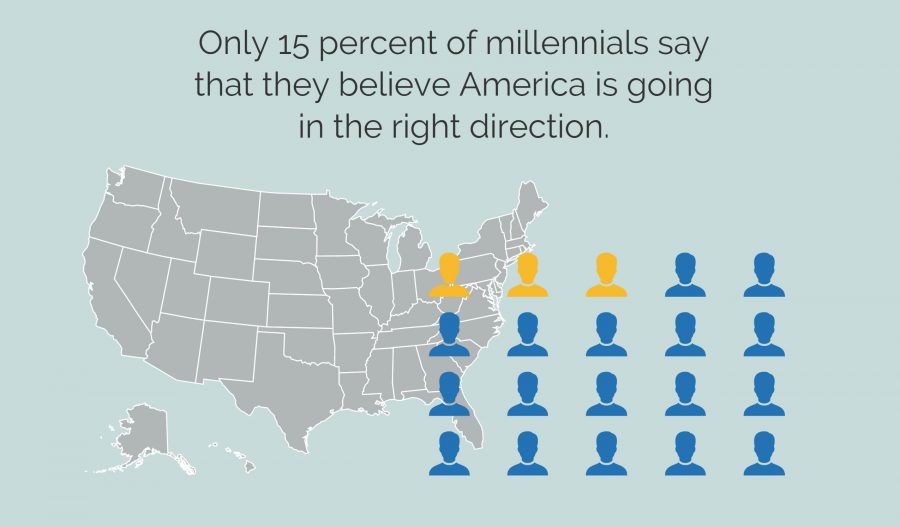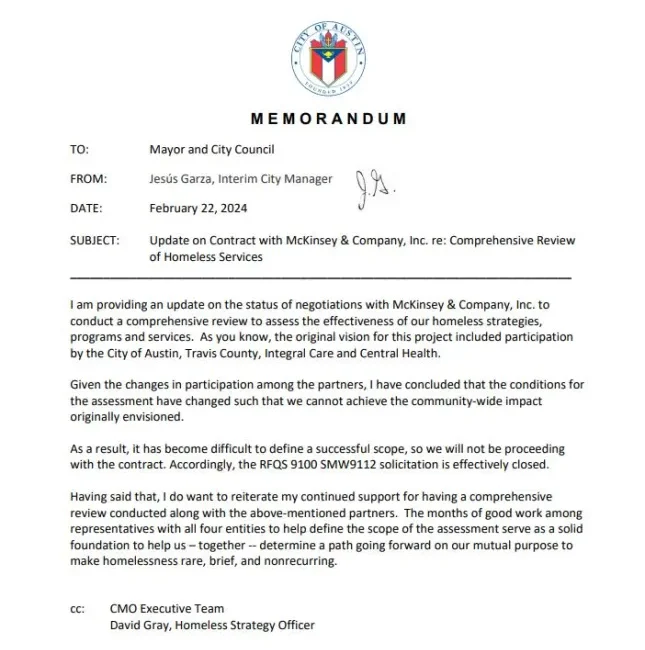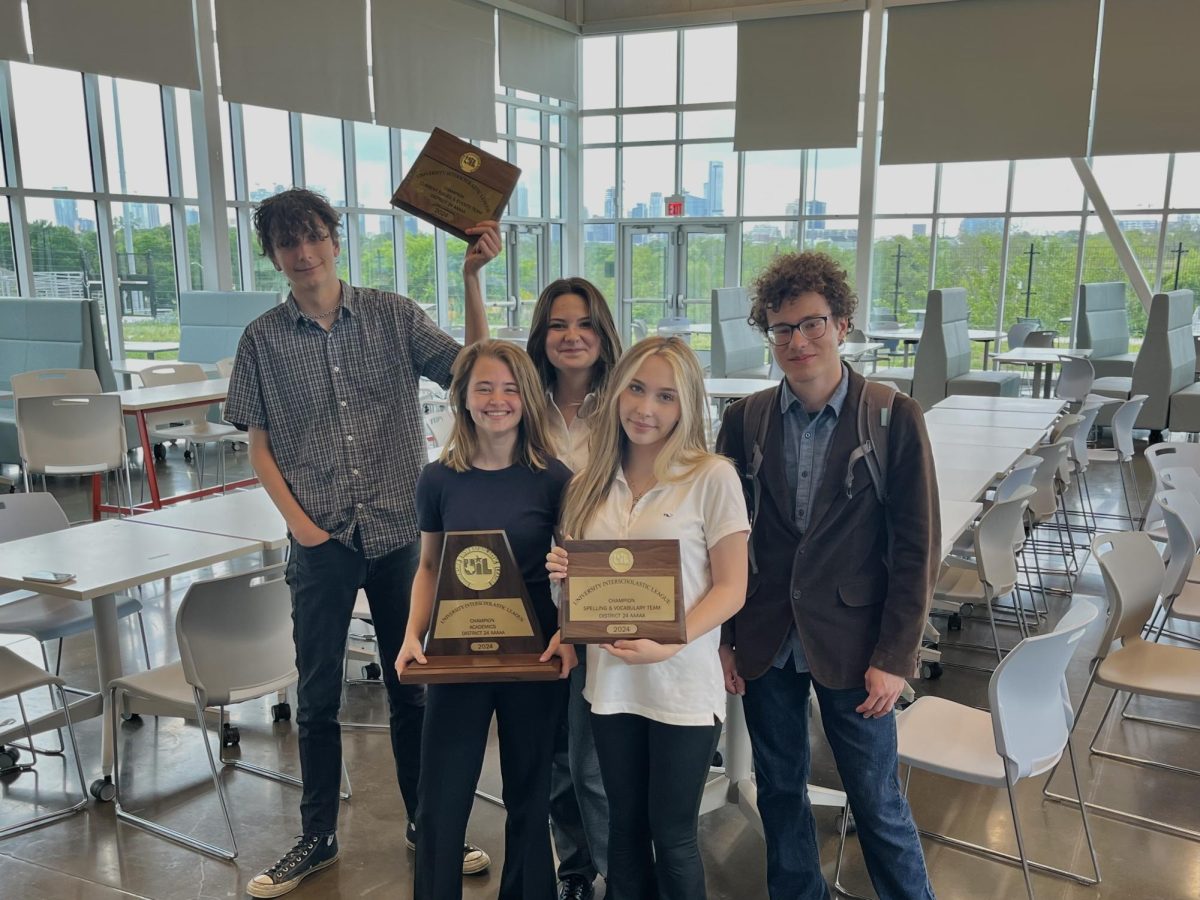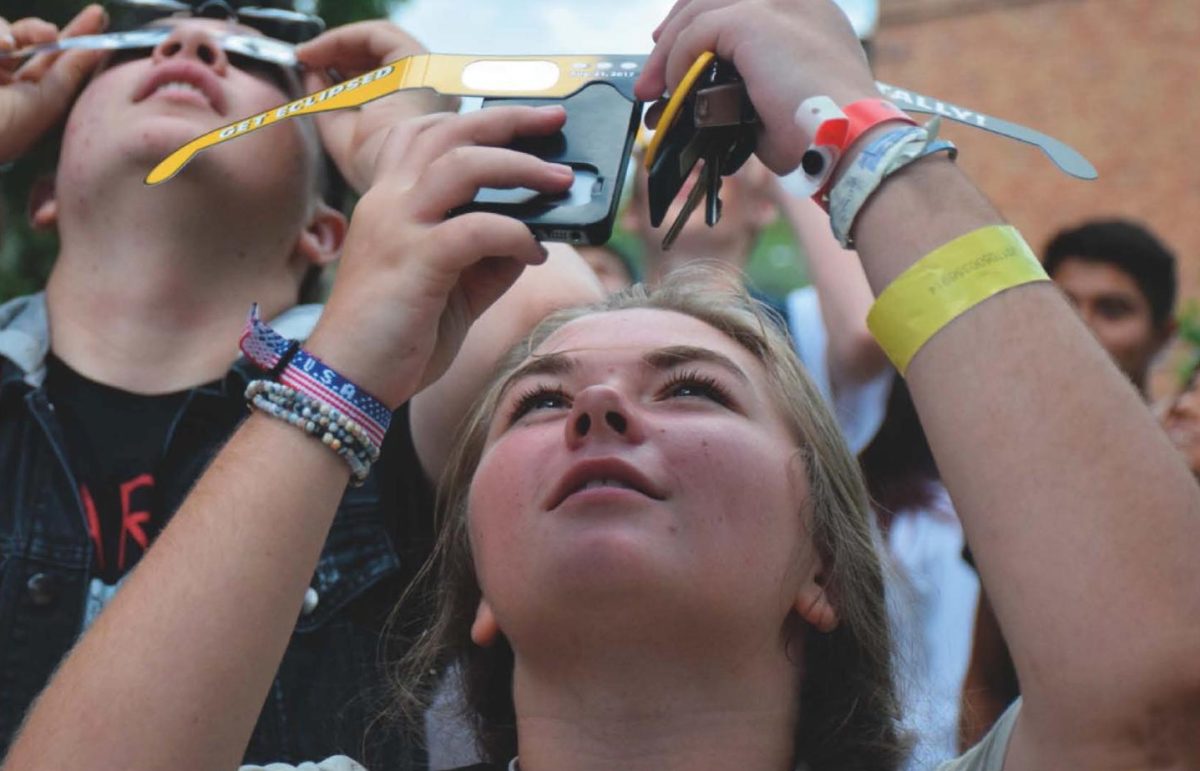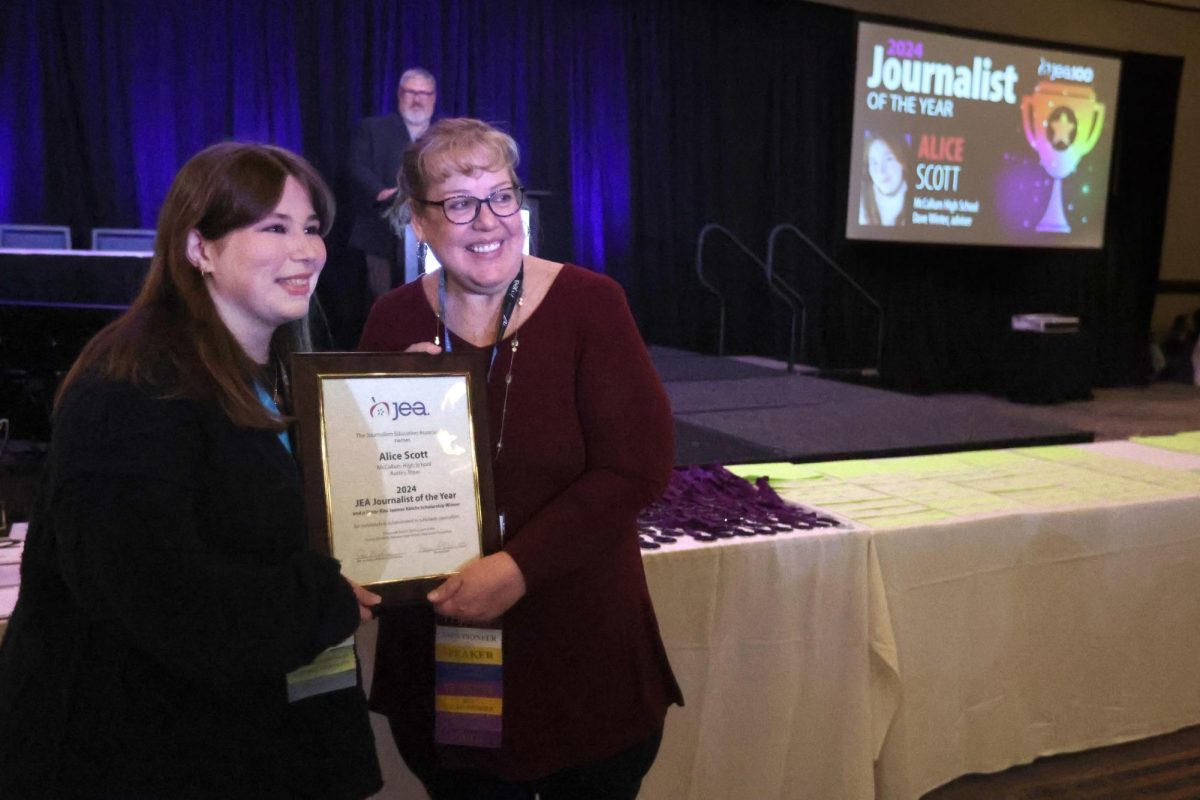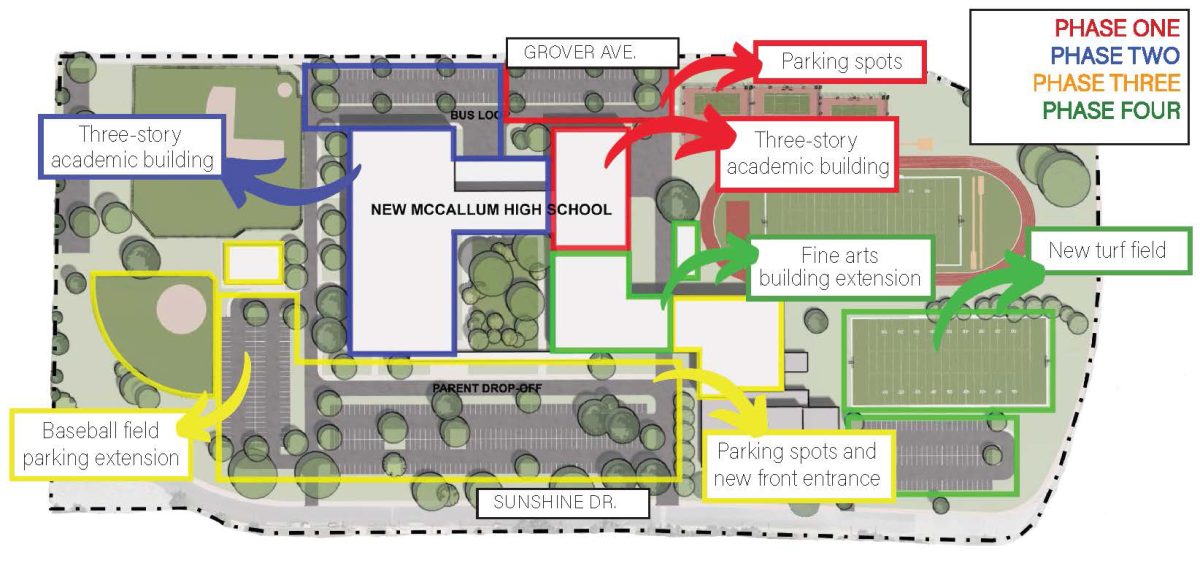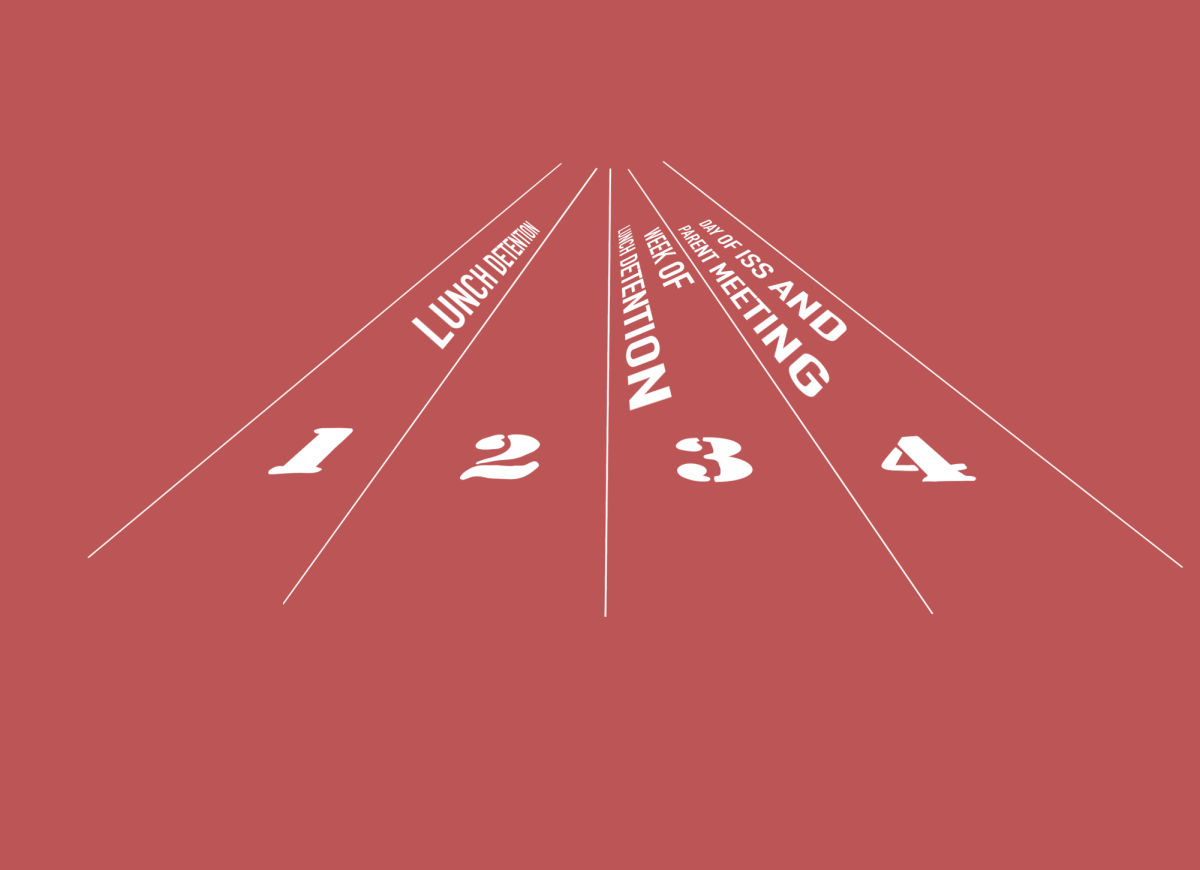Almost all millennials, the generation born from around 1982 to 2000, have now reached 18 in an unusually turbulent election year. As such, headlines like ‘Clinton woos millennials’, and “Trump courts youth vote” have become more and more common.
Last February, The Shield published an in-depth news story considering the influence that seniors at McCallum might play in shaping the course of their first presidential election in Texas. Today, seniors at McCallum and all across America, will cast their first votes for president. The outcome of the election is just the end punctuation of a long political process in which millennials have played a pivotal role. Over the course of what has seemed like an endless presidential campaign, millennials have shaped the conversation, challenged the conventional candidates, and caused changes in the political platforms of the candidates and their parties.
Around half of millennials tend to vote liberally, and 60 percent voted for Obama in 2012. They are the most diverse generation yet. Less than 60 percent of millennials are white, as opposed to 80 percent of Baby Boomers. More than three quarters favor gay marriage, almost two thirds want action on climate change, and almost three fifths want to legalize illegal immigrants.
In the Democratic primaries, Bernie Sanders raised an unprecedented amount of support among millennials. The senator from Vermont was the only one out of five candidates to whom millennials gave a positive favorability rating.
“Bernie has a clear ambition and honest past,” junior Io Hickman said.”I think he really stands for what our generation is all about, which extends over a wide range of issues. For me, it was his connection with people, and his passionate speeches over topics I care a lot about. I love how frequently he called out the problems we face as a country instead of making excuses for national racism, sexism, homophobia, climate change, etc.”
Many say that Sanders’ appeal with young voters comes from him focusing on issues that young voters say they care about, instead of dismissing the younger generation as a group that doesn’t historically turn out the vote.
“I think, at least for my generation, we care a whole lot more than people think,” senior Amy McInnes said. “The older generations all seem to think that we’re so consumed in ourselves and our technology. I like to believe that they’re wrong about that.”
At the Democratic convention last summer, Sanders accepted defeat and endorsed the candidacy of Hillary Clinton in a show of party unity. Instead of rallying along party lines, some of Sanders’ millennial supporters have reacted to Clinton’s nomination by turning to third-party candidates in frustration. Many young voters cite anger with the unprofessional behavior and scandals of the two main candidates as a reason to support third-party candidates, but even more dismiss the Green Party’s Jill Stein and Libertarian Gray Johnson as viable options entirely.
“I feel like they have no idea what they’re doing, honestly,” senior Ezra Ferrell said. “They seem to have good intentions but also seem to be completely clueless on how things actually work in the White House.
Millennial voters tend to have extremely low opinions of the two frontrunners who a vying to become president today. Only 17 percent hold a favorable opinion of Trump, while 47 percent approve of Hillary Clinton. This could be part of the reason that turnout among young voters has historically been lower than of any other generation. In 2012, only 37 percent of voters aged 18-24 cast ballots, compared to the 69 percent of eligible baby boomers. In addition to dissatisfaction with the candidates, millennials are also said to lack political knowledge and to be ambivalent to the toward the voting process.
“I think lots of people are throwing away their votes or purposefully trying to make things worse,” junior Ryan Chatterjee said. “People are treating the election like a huge joke, which I think is new.”
Though millennials are becoming much more politically active as they age, some are still frustrated with youthful apathy.
“We’re sort of at a turning point and we haven’t yet decided what our values are or what we’re gonna do as a generation,” Chatterjee said.
As the decisive moment of the campaign arrives today, it appears that many millennials will vote for Clinton as they voted for Obama in the 2012 election. According to the GenForward survery series, 60 percent of millennials will cast votes for Clinton as they did for Obama in the last election.
“I support Hillary because of her support of women’s rights, expanding health care, immigration, climate reform and gun control, which are all things I also believe in and all things her opposing candidate is strongly against,” senior Ella Whitaker said.
Though they are often criticized by conservatives for leaning to the left, millennials aren’t the only young generation to have held mostly liberal views. In fact, most generations begin liberal; other half of the Baby Boomers report that their views have become more conservative over time.
“My generation is like any other,” senior Matthew Phillips said. “The 1920s had flappers, and we have feminists. The 1970s had the Black Panthers, and we have #BlackLivesMatter. We’re no different.”
The primary difference of millennials from any other generation is the rise of technology and social media, which has changed life in America.
“Obviously it’s made finding and spreading dirt on candidates way easier,” Hickman said. “People are able to watch a one-minute video and decide how much they like someone. It’s a little sick, but if you’re getting good, unbiased information, technology can be, and quite frankly for my generation, is, vital to this election. People are on social media constantly, so without some type of Internet presence, it’s almost as though the candidate doesn’t exist. Plus it’s a great way of showing support and getting your word out as a normal person. But it’s also extremely risky, because you might not know what sources are reliable.”
Today, millennials in Texas and throughout the country will play an important role–perhaps a pivotal one–in determining who becomes our next president.
But after today moves from current events to social studies, the role of millennials in the political process is less clear. It remains to be seen whether or not the generation will continue supporting their progressive ideology and how technology will shape and empower their participation in the political process.




